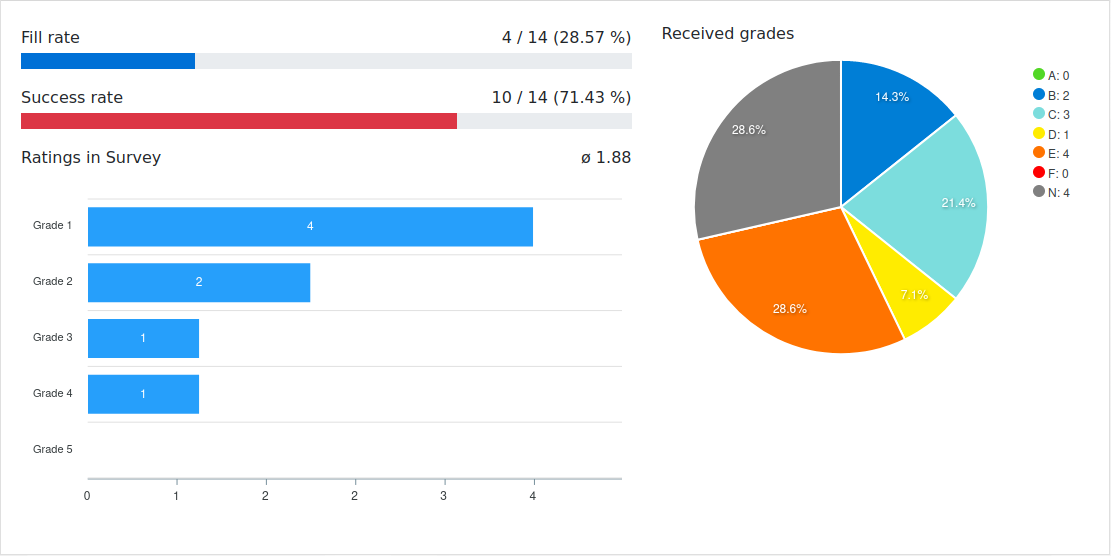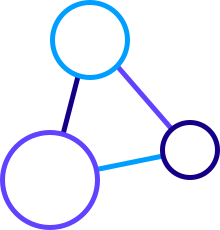Winter semester is over
During the semester we ran two subjects – Enterprise Architectures (EAR) and Ontology and Semantic Web (OSW).
Enterprise Architectures
Enterprise Architectures (EAR) is a course in the bachelor’s SIT study programme. Its goal is to teach the students how to build Web applications using enterprise-ready technologies such as Spring (Boot) and JPA, as well as understand principles and techniques of building large-scale and business-critical information system.
Subject description on the faculty Web
Total number of 41 out of 64 students passed the course in the winter semester of 2022/2023. The subsequent annual survey showed generally positive reviews with an average score of 1.36 (on the scale 1-5, lower is better). Main feedback was towards the organizational and technical aspects of the course, and it will be taken into account for the next year.
As can bee seen from the trend in the following image, the course’s rating has been stable at around 1.5 with a slight improvement in the last year.

Ontologies and Semantic Web
Ontologies and Semantic Web is a master’s degree subject focused on bringing meaning to the data and its processing in this way. The course guides students through current trends and technologies in the semantic web field.
Subject description on the faculty Web Details for students at CourseWare
In the winter semester 2022/23 the teachers assigned to the course were Petr Křemen and Michal Med. During the whole semester, students got the theoretical basis in the semantics and ontologies and in the tutorials they were practicing new knowledge on the real data. During the course, students processed semestral work with three checkpoints, in which students proved the understanding of semantics and ontologies and ability to process the data in this way.
In the last year’s term (winter 2021/22) the course took huge variation due to the deprecated lessons and bad feedback from students. Since the change, score of the student survey rapidly increased and the trend continues in this semester, too. Feedback given by students from the last semester was already worked in.

From the feedback given this year, some more changes must take place, primarily better description of semestral work including all checkpoints and samples on how individual checkpoint outputs should look like.

From the total count of 14 students, 10 students have passed the exam, which is similar to the last year’s success rate. The overall rating in the survey is also similar to the last year.
